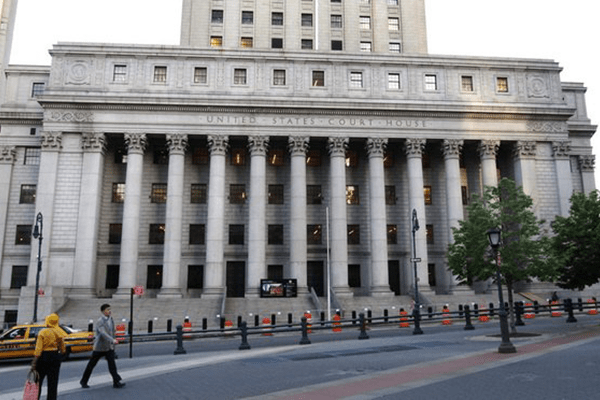Mall Owners Claim Clarkstown Wants Millions Of Dollars in Concessions to Release Restrictive Covenant
LEGAL ANALYSIS
EklecCo NewCo, the Delaware-based LLC that owns the Palisades Center, will have another chance to fight a town-imposed restriction limiting its right to expand an existing but unused space when the case comes before Chief Judge Robert A. Katzmann on Jan. 6th at the United States Court of Appeals for the Second Circuit.
The Palisades Center in June lost its federal claims in district court where it argued that the restrictive covenant forbidding expansion of the mall without a public referendum violated the center’s 1st and 14th amendment rights.
The federal claims in the suit were determined to be “time barred” or too late for the court to tackle on their merits because the case was filed after the statutes of limitations had expired. But EklecCo NewCo will argue to the appeals court that no statute of limitation applies when a landowner challenges the validity of a restrictive covenant.
“Under New York law, the right to seek removal of a restriction on the use of real property is “never barred by the Statute of Limitations because it is a continuing right which exists as long as there is an occasion for its exercise,” says the court brief.
Originally the Restrictive Covenant stated that EklecCo could obtain its release if EklecCo waited 24 months and Palisades Center was operating at 90% occupancy. The mall owner says it satisfied the initial conditions specified in the Restrictive Covenant and attempted to seek release. But the town converted the condition into a permanent bar on expansion.
The Palisades Center is fighting Clarkstown over a town-imposed restriction limiting its right to build out and lease an existing but unused 240,000 square-foot section of the mall’s fourth floor. The 1.85 million square-foot mall needs town and voter approval in order to expand.
In 2002, Clarkstown voters overwhelmingly said no to the mall’s expansion after the town held a referendum to release the mall from the Restrictive Covenant. More recently, public officials have been urging Supervisor George Hoehmann to hold another referendum but there has been no indication that a vote will be held any time soon. Both County Executive Ed Day, and Clarkstown’s Economic Development Committee have been calling for a resolution on the impasse.
Hoehmann has said the lower courts have decided and he believes the opinions of the district courts will stick.
EklecCo in the appeals case alleges between 2014 and 2016 the town sought to force the mall developer to “pay millions of dollars and make other material concessions” as a condition to release the Restrictive Covenant. To date, the town has maintained that voters, not the Town Board, must decide whether or not to release the center from the covenant.
EklecCo is arguing the covenant created an entirely new, ad hoc land-use approval process and that it is using that process to block expansion (as otherwise permitted by the zoning code) and make “fresh attempts to exact millions of dollars and other material concessions from EklecCo in exchange for another discretionary benefit – Town Board consent to release the Restrictive Covenant.”
That referendum requirement is itself an unconstitutional burden on EklecCo’s right to petition, the suit says, because it places a further obstacle between EklecCo and the Planning Board. Also, EklecCo contends Clarkstown does not explain what would constitute a “formal request” for a release, and the Restrictive Covenant provides no guidance.
The original intent of the Restrictive Covenant was purportedly to limit the impact of the mall on the environment and traffic. But EklecCo is claiming it’s the Planning Board’s role to determine this condition, and that the claim runs contrary to the Planning Board’s finding at the time that said “the application for the Revised Site Plan Approval for Palisades at approximately 1.85 million square feet will not have a significant impact on the environment.”
The suit goes on to say “This demonstrates the Town’s claimed interest in limiting impacts on the environment and traffic was merely a pretext for its discriminatory, malicious, and/or bad faith intent against EklecCo.”










